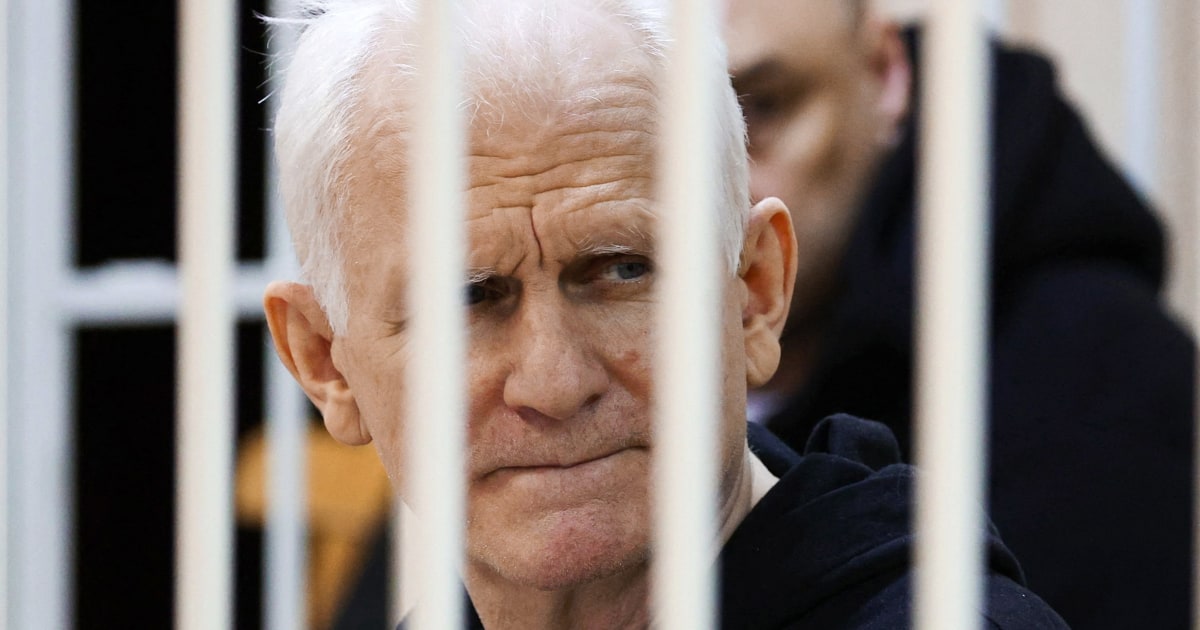Key takeaways:
- Ales Bialiatski, a Nobel Peace Prize winner and founder of the Viasna human rights center, was sentenced to 10 years in prison.
- The sentencing of Bialiatski has been met with international condemnation.
- The sentencing of Bialiatski is seen as a major setback for the Belarusian human rights movement, and a sign of the government’s increasing crackdown on dissent.
On Friday, a Belarusian court sentenced Ales Bialiatski, the country’s top human rights advocate and one of the winners of the 2022 Nobel Peace Prize, to 10 years in prison. Bialiatski and three other top figures of the Viasna human rights center he founded were convicted of financing actions violating public order and smuggling, according to Viasna.
Valiantsin Stefanovich was given a nine-year sentence; Uladzimir Labkovicz seven years; and Dzmitry Salauyou was sentenced to eight years in prison in absentia. Bialiatski has been a vocal critic of the Belarusian government and its human rights record. He is also the founder of the Viasna human rights center, which has been a major force in the country’s human rights movement.
The sentencing of Bialiatski has been met with international condemnation. The United Nations High Commissioner for Human Rights, Michelle Bachelet, called the sentencing “a grave injustice” and urged the Belarusian government to immediately release Bialiatski and the other three activists.
The European Union has also expressed its concern over the sentencing, calling it “a clear violation of the right to freedom of expression and assembly.” The EU has also called on the Belarusian government to release all political prisoners and to respect its international human rights obligations.
The sentencing of Bialiatski is seen as a major setback for the Belarusian human rights movement, and a sign of the government’s increasing crackdown on dissent. It is also a reminder of the country’s deteriorating human rights situation, and the need for international pressure to ensure that the Belarusian government respects its citizens’ rights.



Be First to Comment